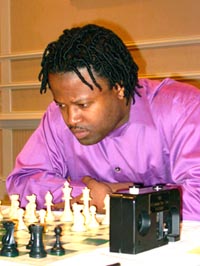 |
 |
 |
 |
 |
 |
 |
 |
 |
 |
 |
 |
 |
 |
 |
 |
 |
 |
 |
 |
 |
 |
 |
 |
 |
 |
 |
 |
 |
 |
|
|
|
|
|
|
|
|
|
|
|
|
|
|
|
|
|
|
|
|
|
|
|
|
|
|
|
|
|
|
|

|
|
|
|
|
|
|
|
|
|
 |
|
 |
|
 |
|
|
|
|
|
|
|
|
|
"Properly taught, a student can learn more in a few hours
than he would find out in ten years of untutored trial and error."
~EMMANUEL LASKER, World Champion, 1894-1921~
|
|
|
|
|
|
|
|
|
|
|
|
|
|
|
|

|
|
|
|
|
|
|
|
|
|
Improve Your Chess Skills!
Board Vision - Challenging exercises without the use of a board. These exercises are important in order to sharpen your cognitive skills and ability to retain the mental image of chess positions.
Test #1 (4 sections, 55 questions)
Test #2 (4 sections, 50 questions)
Test #3 (4 sections, 50 questions)
|
|
|
|
|
|
|
|
|
|
|
|
|
|
Tactics - Tactical alertness is a key component to chess success. Spotting tactical patterns can allow one to take advantage of an opponent's carelessness, or avoid a quick and devastating defeat. Because tactics are such an integral part of warfare, it's important to practice these themes since they occur frequently during a given chess match.
Test #1 (20 problems)
Test #2 (20 problems)
Test #3 (25 problems)
|
|
|
|
|
|
|
|
|
|
|
|
|
|
Endings - Understanding of basic endings can certainly add a ton of points to your tournament performance. GMs understand intricacies in endings and strive for advantageous setups without extensive analysis. This insight can result in a win from a drawn position, or a draw from a lost position. These exercises may help you in your understanding of endgame themes.
Lab #1 (I.A. Horowitz, Irving Chernev, BCE collection-- 25 key positions)
Lab #2 (I.A. Horowitz, Irving Chernev, BCE collection-- 25 key positions)
Lab #3 (Various Composers, and Players-- 25 key positions)
|
|
|
|
|
|
|
|
|
|
|
|
|
|
"It should be noted that current opening variations come and go, and the evaluation of certain positions change. But the value of knowing how to play endgames well remains constant."
~ANATOLY KARPOV, Former World Champion~
|
|
|
|
|
|
|
|
|
|
|
|
|
|
Drum Lesson
This lesson highlights a very exciting game and an important one for GM Maurice Ashley. This pivotal game was played in 1997 in Bad Wiessee, Germany against Polish GM Robert Kempinski. Going into the 6th round, both players were tied for 1st place at 5-0. Ashley went into this game with a chance at his 2nd Grandmaster norm. He would be successful in this quest and finally earned the title the next year.
Below are three lessons which entail you examining the Ashley-Kempinski at various levels of analysis. This is a self-study exercise and you can go through the game at whichever level is appropriate. If you are a "beginner," or new to chess, make sure you can score 80% on exercises #1, #2 and #3 before taking the lesson. If you can't, go here for a refresher.
| Beginner | Intermediate | Advanced |
|
|
|
|
|
|
|
|
|

|
|
|
|
|
|
|
|
|
|
|
|
 |
|
|
|
|
 |
|
|
|
|
|
|
|
|
|
|
|
|
|
|
|
|
|

|
|
|
|
|
|
|
|
|
|
Copyright © Daaim Shabazz. All rights reserved. Every page at this domain (thechessdrum.net) is the property of The Chess Drum and any duplication and/or use of contents therein must receive expressed written consent.
|
|
|
|
|
|
|
|
|
|
|
|
|
|






